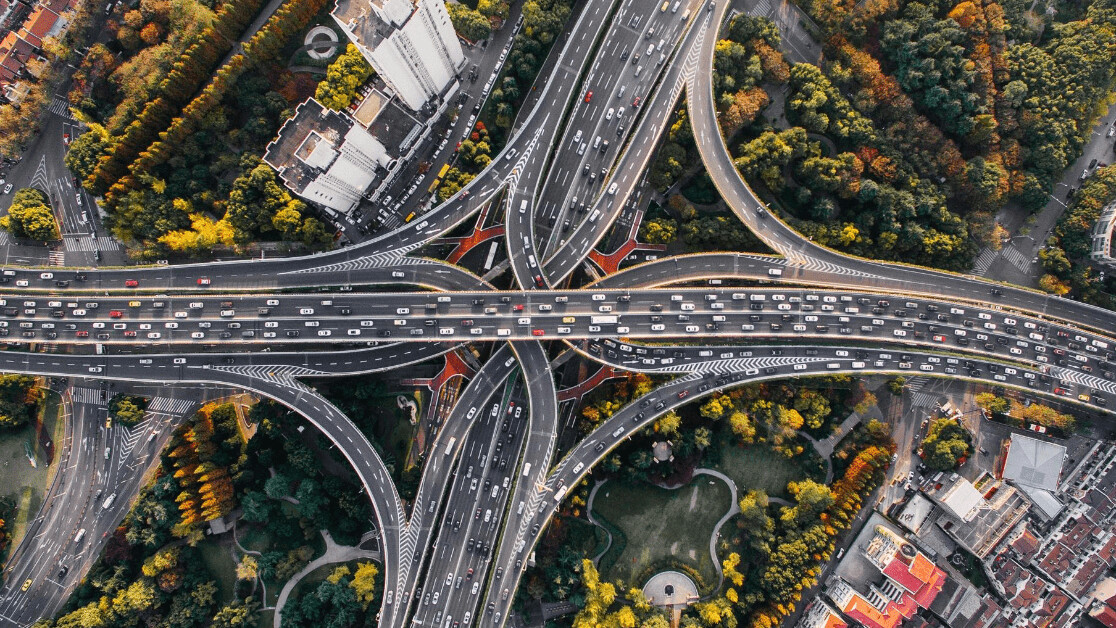
This article was originally published on Cities Today, the leading news platform on urban mobility and innovation, reaching an international audience of city leaders. For the latest updates follow Cities Today on Twitter, Facebook, LinkedIn, Instagram, and YouTube, or sign up for Cities Today News.
The COVID-19 pandemic has deeply impacted transport behavior, and lockdowns have shown how much healthier city life could be without clogged streets, deafening noise and polluted air.
According to the latest data from the AA, the traffic on Britain’s roads during the weeks in which lockdown measures were imposed was at a similar level to that seen in the late 1980s and early 1990s. It slumped to between 35 percent and 40 percent of the pre-coronavirus volume at the beginning of lockdown but that has since doubled to around 75 percent. UK carbon emissions reportedly fell by 31 percent in April but have increased again since.
As lockdowns ease and businesses reopen, more people will want or need to move around and traffic will return to normal soon or even increase. Because of the virus, many people are worried about traveling by public transportation and they´ve started increasingly using their cars again. Currently, we see an increased interest in private cars, car sales and registration in many markets.
Authorities all over the world are wondering whether the pre-pandemic levels of congestion and pollution will return to their cities or if there’s an alternative that can make them healthier, greener and a lot smarter than previously.
In the UK, the priorities for the government are to invest in cleaner air and do even more to tackle air pollution. Over recent decades, UK air quality has improved significantly thanks to concerted action at all levels but there is a lot more to do. Clean Air Zones are one measure for helping us to deliver this ambition.
Smart navigation
Even before COVID-19, less than half of participants in a March survey conducted in the UK by Kapsch TrafficCom were prepared to use public transport more often in order to avoid congestion. As a result, we can expect increased traffic on UK roads. When it comes to the damage caused by traffic – emissions, noise and effects on health – congestion itself is responsible for about a quarter of that impact, and in peak hours even one third.
The Kapsch TrafficCom Index, which surveyed 1,000 UK citizens representative of the population, found that 75 percent were concerned about the negative environmental impact this might have. Faced with such increased congestion, nearly as many are prepared to use a navigation app to choose their route. Surprisingly then, when selecting a route, environmental considerations are not a priority for the majority of drivers. Instead, almost two-thirds of respondents said they want a route that guarantees the shortest travel time. Further, only 39 percent of respondents consider routes with the lowest impact on the environment to be “important” or “very important”.
The intelligent use of navigation devices offers opportunities to reduce road congestion and traffic jams. This technology could also help to achieve other desirable goals. For example, traffic planners could also factor in environmental impacts such as CO2 emissions in their route recommendations. The survey findings show that this would require a change in overall thinking, though, for both citizens and cities.
“Smart navigation networks are a key technology for fundamentally reducing traffic jams and pollution on roads,” Parsons added. “The desire of drivers to use navigation tools to minimize travel times should be utilised by public planners. The aim is to offer digital traffic management solutions that take important societal goals into account. Environmental protection is one of these important targets that will improve our everyday life.”“It should be noted that each city has a different transport policy and parking management schemes. This is not considered in conventional navigation systems and has undesirable consequences,” explained Steve Parsons, Head of Sales UK & Ireland at Kapsch TrafficCom. “This is causing more congestion than intended.”
Smart signals
For example, ‘adaptive’ traffic light management systems, which quickly react to specific traffic situations and change traffic, have already proven their effectiveness. Such signal control systems have been installed in Madrid, Mumbai and Quito and in the Spanish capital, they reduced traffic jams by about 20 percent.
The volume of traffic jams will be reduced even more significantly if car data is linked to the traffic control network. At the same time, CO2 emissions will fall and the traffic flow can be distributed more evenly over the road network via route recommendations which drivers get in their cars automatically. This combination of optimised traffic light control and intelligent route planning can reduce congestion by up to 40 percent.
“A more intelligent steering of traffic lights alone could reduce street congestion by 25 percent,” commented Steve Parsons. “Digital technologies such as artificial intelligence (AI) and big data processing could bring about a significant improvement at a relatively small cost. All new cars are already outfitted with smart tools, and mobile phones boast the necessary tracking features. All it now takes is an upgrade to the existing traffic infrastructure”.
“These existing examples suggest that the situation on UK roads does not necessarily have to remain at an unsatisfactory level. We have the tools to resolve the challenges and we can create a more sustainable path to a better future,” Parsons said.
Get the TNW newsletter
Get the most important tech news in your inbox each week.




